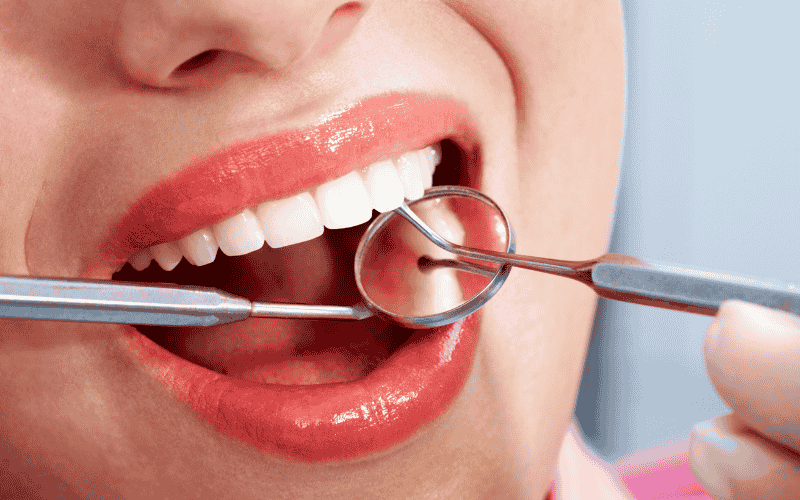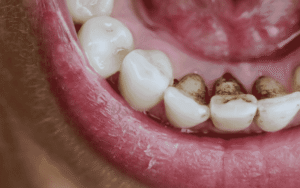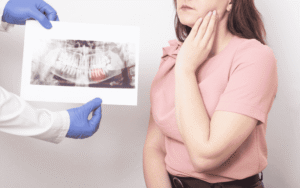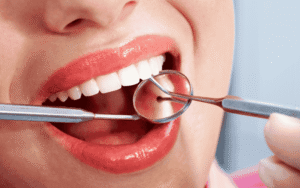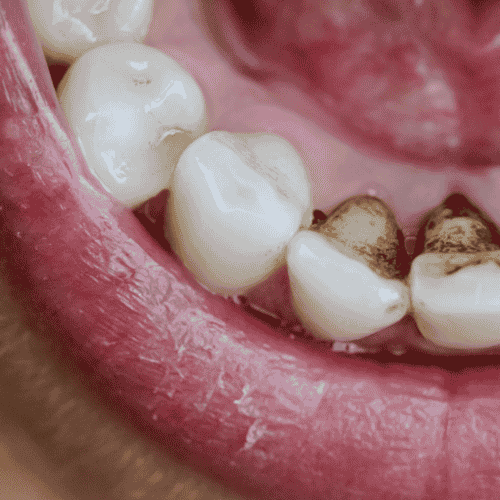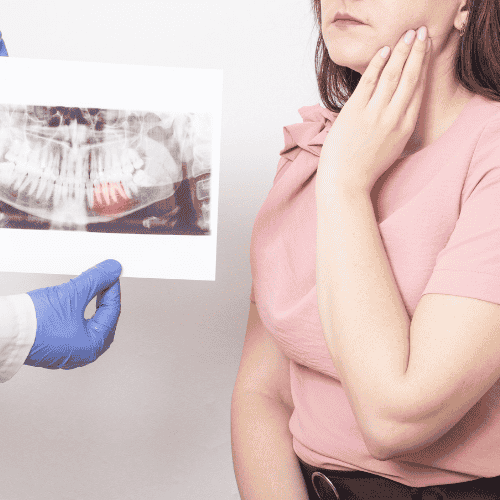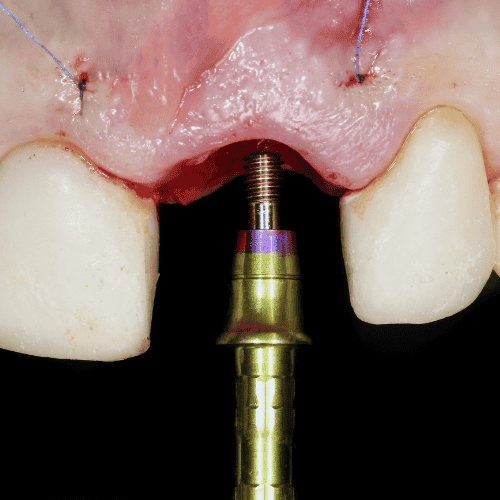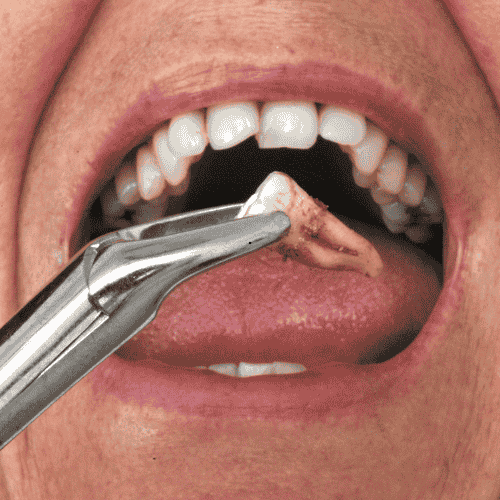What is Operculum in dentistry? A dental operculum refers to a flap of gum tissue that partially covers a tooth, typically a wisdom tooth operculum, as it emerges through the gums. This condition, also called a gingival operculum, is common when the tooth does not fully erupt, creating a small pocket of tissue that can trap food particles and bacteria. While it is most frequently associated with operculum wisdom teeth, an operculum gum flap can develop around other teeth as well. If left untreated, the area can become infected (infected operculum), leading to pain and potential complications.
In this article, we will explore the causes, symptoms, and treatment options for a dental operculum, helping you understand how to address and prevent issues related to this condition, including operculum teeth and operculum molar problems. For more advanced solutions, many patients also consider Turkey dental treatment for procedures like operculum management or wisdom tooth extraction.
What Causes a Dental Operculum to Form?
A dental operculum can occur owing to tooth eruption and other circumstances. Understanding these causes helps diagnose and treat the condition:
- Delayed Tooth Eruption: When a tooth emerges later than expected, the surrounding tissue may not entirely shrink, resulting in the production of an operculum in mouth, or flap of gum tissue.
- Impacted Teeth: Teeth that are partially trapped beneath the gum or bone often result in the development of an operculum dental flap as the gum tissue struggles to accommodate the emerging tooth.
- Crowded Teeth: Limited space in the mouth, especially around operculum wisdom tooth areas, can increase the likelihood of an operculum in dentistry forming as the teeth struggle to erupt properly.
A Operculum flap of gum tissue can trap bacteria and food particles, causing disease if not addressed immediately. Understanding the root cause of dental operculums is crucial for prevention and treatment.
Symptoms and Common Problems Linked to a Dental Operculum
Dental operculums are not risky, but untreated ones might cause oral health issues. Understanding signs and issues is crucial for early intervention.
Pericoronitis
Pericoronitis, a gum infection around a partially erupted tooth, is the most prevalent operculum dentistry condition. The symptoms of pericoronitis include:
- Difficulty opening the mouth (trismus).
- Bad taste or breath
- Swelling and pain nearby the impacted tooth
- Severe episodes of fever
Untreated pericoronitis can cause tumours or spread to other parts of the body.
Food Trapping and Bacterial Growth
The small pocket formed by the operculum gum flap can trap food particles and bacteria, increasing the risk of:
- Cavities
- Gum disease
- Persistent foul breath
These issues can worsen over time if the operculum teeth are not addressed.
Cheek or Opposing Tooth Trauma
Biting or chewing can irritate the operculum’s elevated tissue, causing pain and irritation. It may cause tissue discomfort or trauma.
Can a Dental Operculum Lead to Infection or Pericoronitis?
Dental operculums can cause infection if not appropriately handled. An operculum, a gum flap, partially covers an erupted tooth, allowing bacteria to proliferate. This tissue flap traps food and bacteria, making it ideal for infection.
The most common operculum consequence is pericoronitis, an inflammation of the tissue around the partially erupted tooth. This condition usually affects people between 20 and 29, however it can happen at any age. Plaque and germs form in the hard-to-clean area, causing the infection.
Symptoms of infection or inflamed operculum dental include:
- Pain near the afflicted wisdom teeth.
- Swollen gums and lymph nodes
- Difficulty swallowing
- Bad breath or bad taste
- Pus around the afflicted area
- General discomfort and fever
When severe, the infection can spread to the throat and neck, requiring immediate dental care. Mild pains and poor breath may occur in chronic situations.
Pericoronitis is more likely among pregnant women, fatigued people, and those with poor oral hygiene, thus early treatment is crucial.
How Is a Dental Operculum Diagnosed by Dentists?
Usually, the first steps in figuring out what is wrong with a dental operculum are a full exam and analysis of the symptoms. What to expect when you get a diagnosis:
- Physical Examination: The dentist will do a physical exam of the area around the tooth that is causing problems. This usually means carefully lifting the gum tissue to look for swelling, infection, or a flap over the tooth. Dentists can see the operculum.
- Symptom Assessment: If you feel any pain or discomfort, such as trouble opening your mouth, swelling, or an unpleasant taste, please let us know. These signs help the dentist figure out if you have operculum-related pericoronitis or food stuck in your mouth.
- X-rays: Dentists may use X-rays to find out where teeth are and to make sure that the operculum is connected to teeth that are impacted or only partially erupted. This lowers the chance of getting an infection or having your teeth rot, which would need other treatment.
- Further Testing (if needed): Your dentist may take a sample of any pus or discharge around the infected area to confirm the infection. This can help find the germs and choose the best operculum treatment.
Your dentist can tell you if you have a dental operculum and give you the best treatment to ease your symptoms, stop infections, and fix any problems with your teeth.
Treatment Options for a Dental Operculum
Determining the severity of a dental operculum, your dentist will suggest therapy. Treatment depends on whether the operculum causes pain, infection, or other issues. The most prevalent treatments are:
Conservative Treatment (If the Operculum Infection is Mild)
Your dentist may advise letting the operculum alone and cleaning it while it heals. Gentle rinsing with warm salt water may decrease discomfort and bacterial accumulation.
Antibacterial Mouthwash or Antibiotics
Your dentist may prescribe antibacterial mouthwash or oral medications to treat an infection and reduce inflammation. This is generally the initial defence before surgery.
Operculectomy (Minor Surgical Procedure)
Your dentist may prescribe an operculectomy if the operculum persists. This involves gum flap removal by traditional or laser-assisted surgery. Laser treatment is popular because it reduces pain and speeds recovery.
Wisdom Tooth Extraction
Depending on the cause, your dentist may recommend tooth extraction. This is especially prevalent when the tooth is misaligned or cannot erupt from the gums.
Follow-Up Care
To promote proper healing after surgery or treatment, your dentist may schedule follow-up appointments. Infection prevention may require regular cleaning and antimicrobial treatment.
Managing Pain and Treating Infection from a Dental Operculum
If a dental operculum causes pain or infection, your dentist will help you treat it. This will happen:
Pain Relief
Your dentist will offer over-the-counter anti-inflammatory drugs such as ibuprofen or naproxen for operculum pain. Until treated, these medications minimise swelling and pain.
Treating Infection
If bacteria are under the operculum, your dentist will thoroughly clean it. For your comfort, they may numb the area using local anaesthetic. Your dentist may also recommend using chlorhexidine-containing mouthwash to keep the area clean and prevent the infection from spreading.
Antibiotics for Infection
Your dentist may prescribe medications for severe infections. To fully treat the infection, take all antibiotics as prescribed, even if you feel better.
Ongoing Care
Your dentist may request a follow-up visit to assess recovery. Regular checkups and treatment will prevent the disease from returning and help you recover.
When Is Operculum Removal or Wisdom Tooth Extraction Needed?
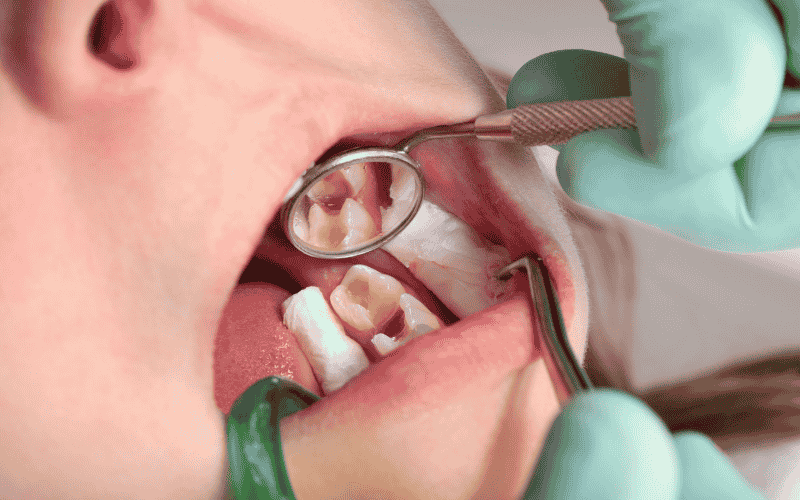
Dental operculums may require more comprehensive treatment if they create persistent problems. The following circumstances require operculum or wisdom tooth removal:
Operculum Removal (Operculectomy)
If the operculum gives you ongoing problems, your dentist may propose an operculectomy, a small gum flap removal surgery. The operculum is usually the source of infection or pain, especially if the tooth has not fully erupted.
This surgery may be unnecessary if better oral cleanliness and monitoring are enough, as your dentist will employ X-rays and clinical knowledge. Some situations warrant a wait-and-see strategy.
If the wisdom teeth fails to erupt, the operculum may grow again, requiring a second surgery.
Wisdom Tooth Extraction
If conservative therapies like operculectomy fail or the wisdom tooth is causing serious problems like infection or dental decay, extraction may be the best option.
This standard procedure numbs the gums with local anaesthesia. IV sedation may ensure your comfort during extraction. After making an incision in the gum, your dentist will extract the tooth in one piece or in pieces, depending on its condition.
Your dentist will clean and stitch the incision after tooth removal. Post-operative care, including following instructions, will help the area heal properly.
How to Keep the Gum Flap Clean and Prevent Future Infections
Maintaining good oral hygiene around the gum flap (or operculum) and surrounding area helps heal and avoid infection. Here are some efficient ways to clean the operculum and prevent complications:
Brush Regularly and Gently
Clean the operculum with a manual or electric toothbrush. Allow the bristles to reach behind the gum flap and gently brush away food debris. This reduces germs and inflammation.
Use a Sulcabrush
Sulcabrushes clean under the gum flap better than toothbrushes. Thinner bristles clean the tooth and flap while reaching deeper into the gum line.
Mouthwash to Kill Bacteria
Use CDA-approved antibacterial mouthwash to minimise bacteria. Daily mouthwashing prevents infections and improves dental health.
Regular Dental Visits
Regular dentist visits are necessary to monitor your teeth and gums. Your dentist will check the operculum’s healing and clean it when needed.
Avoid Certain Foods
Hard or sticky foods can get under the operculum and cause infection. Avoid these meals while recuperating to avoid discomfort and problems.
Monitor for Pain or Inflammation
If you have discomfort, soreness, or a red, inflamed gum flap, see a dentist immediately. Early treatment can avoid infection and consequences.
When to See a Dentist About a Dental Operculum
If you have pain, a bad taste, swelling, or an infection around a tooth that is only partially erupted, see your dentist right away. Early intervention can help keep your teeth healthy and avoid problems.
You should see a dentist if you have any of the following symptoms:
- Pain or discomfort in the gum flap that will not go away
- Swelling or inflammation around the affected area
- Breath or taste that is always bad.
- Hard to open or chew
- Signs of infection are pus or redness around the gum flap.
If you do not pay attention to these signs, you could get a gum infection or damage to your teeth. If you notice any of these signs, go to the dentist to avoid problems with your teeth.
Frequently Asked Questions
How long does a dental operculum last?
The duration varies depending on the tooth eruption process. Some operculum gums resolve naturally, while others may need operculum tooth treatment.
Can a dental operculum go away on its own?
Sometimes a dental operculum resolves as the tooth erupts through the gum. It may be necessary to remove the gum flap if it causes pain, infection, or other difficulties.
Is a dental operculum a serious condition?
Dental operculums are normally harmless, but untreated they can cause pericoronitis or pain. Monitor symptoms and see your dentist if you have discomfort, swelling, or trouble chewing.
Can a dental operculum cause bad breath?
Yes, a dental operculum can trap food and bacteria under the gum flap, causing bad breath. Preventing this requires regular dental cleaning.
Can a dental operculum lead to tooth decay?
Yes, if not cleaned properly, the operculum pocket can hold germs, increasing tooth decay and gum disease risk. Maintaining local dental hygiene is crucial.
What happens if the dental operculum is not treated?
Untreated operculums can cause chronic pain, infections, and tooth destruction. It might damage gums and teeth in severe cases.
Can an operculum affect other teeth?
Infected gum flaps or wisdom teeth can spread infection or discomfort to neighbouring teeth.
How do you fix rotten teeth?
Dentists may recommend fillings, crowns, root canal treatments, or extractions depending on severity. In some cases, operculum dental treatment may be necessary if the tooth is partially erupted.



